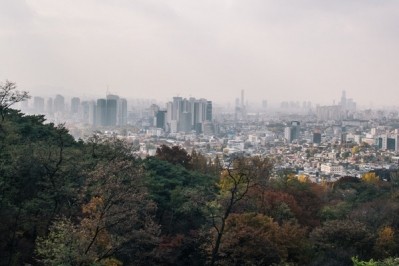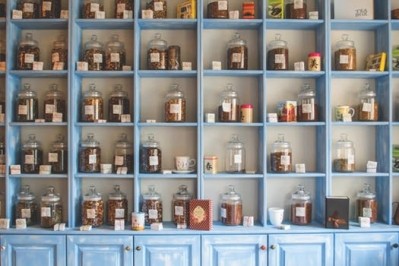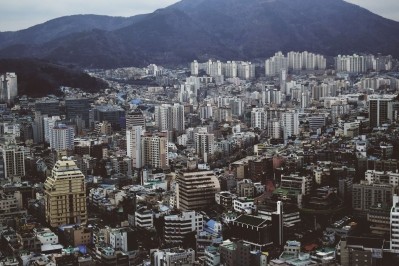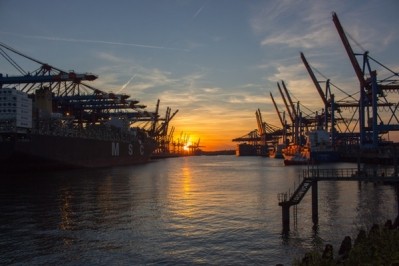Korea and China's political struggle to impact trade?

However, the future of their trade agreement and subsequent cosmetics achievements is under question as the leading APAC players respond over contrasting political views.
Leading publications in both the East; Korea’s daily news beat Pulse and the West; US-based financial publication, Bloomberg report that as the political gap between the two APAC countries gets wider, the cosmetics industry may suffer.
Uncertainty continues
In August last year, the Korean government revealed its plans to implement duty-free limits in a bid to prevent third-party sales of cosmetics in China.
Then in November 2016, we reported how South Korea’s intention to install a new anti-ballistic missile defence system, otherwise known as Terminal High Altitude Area Defence (THAAD) system, had led China to impose broadcasting restrictions of Korean personalities.
Numerous trade restrictions
Now it appears this political struggle is set to continue as the Chinese quarantine and inspection authority placed a ban in December on four air purifiers produced by LG Electronics and Shinil Industrial.
Following the country’s move to toughen the quality standard of air cleaners, it deemed the Korean products to fall short of its safety and performance criteria.
In a move that further suggests the tension between the two countries, China disqualified 47 products at the beginning of the year due to a failure to meet its labelling and safety requirements; 43 of which were Korean.
As the cosmetics industry focuses on strengthening the transparency of its claims on cosmetics labelling, this may also have an impact on specific requirements placed on beauty and personal care brands.
Growth predictions
China, which is known for successfully timing the adoption of new trends such as launching multifunctional products and adopting online distribution channels are expected to grow at a healthy rate in the years ahead, despite economic problems and uncertainty, Euromonitor International revealed.
Korea, on the other hand — famed for its leading K-beauty and K-Pop trends and is home to huge beauty names including Amorepacifiic and LG H&H — is expected to slow down as many of its brands are anticipated to reach maturity and will, therefore, need innovation to spur new interest.






![Able C&C has furthered its partnership with Japanese discount chain Daiso with new makeup launch. [A'pieu]](/var/wrbm_gb_food_pharma/storage/images/_aliases/wrbm_tiny/publications/cosmetics/cosmeticsdesign-asia.com/headlines/brand-innovation/a-pieu-and-daiso-launch-exclusive-2-makeup-line/17339117-1-eng-GB/A-pieu-and-Daiso-launch-exclusive-2-makeup-line.jpg)
![Down Under Enterprises is setting sights on the Asian market as environmental sustainability and traceability become increasingly important. [Getty Images]](/var/wrbm_gb_food_pharma/storage/images/_aliases/wrbm_tiny/publications/cosmetics/cosmeticsdesign-asia.com/headlines/market-trends/down-under-enterprises-shifts-focus-to-china-as-environmental-sustainability-traceability-come-into-the-spotlight/17304932-1-eng-GB/Down-Under-Enterprises-shifts-focus-to-China-as-environmental-sustainability-traceability-come-into-the-spotlight.jpg)
![News updates from Shiseido, Dr.Ci:Labo, Sephora, and more. [Shiseido]](/var/wrbm_gb_food_pharma/storage/images/_aliases/wrbm_tiny/publications/cosmetics/cosmeticsdesign-asia.com/headlines/brand-innovation/updates-from-shiseido-dr.ci-labo-sephora-and-more/17334944-1-eng-GB/Updates-from-Shiseido-Dr.Ci-Labo-Sephora-and-more.jpg)

![Clariant has underscored the importance of localisation strategies and distribution capabilities in China with beauty trends evolving at a rapid pace. [Getty Images]](/var/wrbm_gb_food_pharma/storage/images/_aliases/wrbm_tiny/publications/cosmetics/cosmeticsdesign-asia.com/article/2024/04/16/clariant-emphasises-importance-of-localisation-in-the-era-of-viral-trends/17327969-1-eng-GB/Clariant-emphasises-importance-of-localisation-in-the-era-of-viral-trends.jpg)

![We dive into our most-read stories on formulation and science. [Getty Images]](/var/wrbm_gb_food_pharma/storage/images/_aliases/wrbm_tiny/publications/cosmetics/cosmeticsdesign-asia.com/headlines/formulation-science/skin-science-latest-stories-on-cosmetics-science-and-formulation/17334719-1-eng-GB/Skin-science-Latest-stories-on-cosmetics-science-and-formulation.jpg)